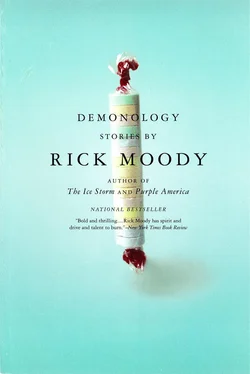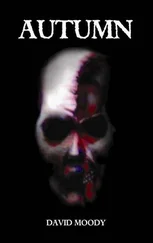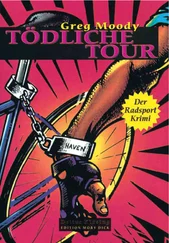Yet here were Debby’s kids on the lawn with the others, and it was proof that you could vanish from this sweet, colorful existence one summer, and the next summer Hawaiian Night would go off without a hitch, as with the Thursday-night dances, so with the annual complaints about club dues, and so forth. The tennis instructor, Maria, chased Robby Pigeon out of the ice-cream line, from which he had swiped a stainless-steel scoop and was now tongue-bathing it, consuming its strawberry delights, defiling the clubs make-your-own-sundae apparatus with his infantile contagions, the Grimm children right behind him, giggling. Maria, it appeared, wore plastic green palm fronds, a South Pacific plumage, over U.S.T.A.-approved whites, as she chased them past the beverage table.
Collectively the children of Hawaiian Night next divined that the leis, which had been bunched, folded, and gathered on an assembly line in Edison, New Jersey, could be untwisted, stretched, and retooled to resemble antique ticker tape, expanding to a length of nearly sixteen feet, something like the footage of Lena Beechwood’s small, sleek round-the-island sailing vessel. Andy Grimm’s son, last seen wearing khakis, blue-and-white-striped button-down Oxford shirt, beige corduroy jacket, and white bucks, now clad only in his trousers, emerged from a swelling population of kids carrying the orange streamer that had been his lei, like a banner proclaiming this club, this lawn, this evening, this way of life his own, where minutes before only the present had been his concern, as he raced from the end of Court No. 3 over to the Adirondack chairs by the swimming pool, staking his claim at the site marked Shallow water, no diving. I confess that I held my breath as I tried, through the incantation of worry, to stave off further Grimm calamity, in which little Drew toppled over the Adirondack chairs, hovered briefly in the air, gathered gravitational freight, broke the surface of the wading end of the pool, struck bottom, cracked his skull, and then bobbed in the shallows, deceased, as Andrew Grimm, insurance executive, recited his next canto of loss. But nothing horrible would happen on this voluptuous Hawaiian Night as five, ten, twelve, fifteen kids chased each other with tropical decorations in the stiff, humid preliminaries of a late-summer storm.
The automatic sprinklers that watered the Har-Tru courts were engaged by the coming of twilight.
The children began to wet themselves down.
Ghostly, a grandfather, from a neglected constituency of grandfathers, appeared at the top of the step where I sat with a camera that I would never remove from its case. Whose grandfather I don’t know, though it would not have been hard to discern convictions, familial traits, resemblances, in the salt-and-pepper fringe around back and sides, upright posture, absence of socks, cable-knit sweater in Franconia green ordered from one of the larger catalogues. I recognized him, of course, as it hadn’t been more than a week since I had espied him in the midst of a practice swing on the first fairway, just as he dislodged, in a manner so vulnerable it provoked a yelp in me, his entire top bridge, so that golf ball and false teeth, in different directions, tumbled into that large, humiliating sand trap just over the lip of the hill.
Look at them, the grandfather said with oratorical authority. As the kids sported in tennis-court fountains. Look at them. Thankful for nothing, not for the sprinklers, not for the moon, not for the salty wind that blows around the mist, not for the way these events get arranged. When I was their age, I had a teacher in school whose car had lost its old rusty fender. Used to see her driving back and forth from school. She always waved, was always cheerful, but it was obvious that she couldn’t afford to get a new fender for her car, who the hell knows why. I think it was a Pontiac. What I did was as follows: I took up a collection among my fellow-classmates. It wasn’t Christmas or Be Nice to Your Teacher Day or anything else, nor was I trying to avert punishment or suck up to my teacher or any such thing. Everyone chipped in a dollar, or maybe their parents chipped in a dollar, whatever it took. My father knew a good mechanic who in turn knew a good spare-parts man, and one thing led to another, and next day at school we presented Mrs. Pendleton with a new fender for her Pontiac. I was the same age as those kids out there, not a day older. I went through plenty of difficult times myself, times when the red ink was more plentiful around our house than the black ink, that’s about how old I am, but I could still afford to help Mrs. Pendleton when I was their age.
Hurricane coming up the coast. Almost certain now. In the coming hours, we would board up our large windows and secure our powerboats. Eternally, in this late-summer moment, Debby Grimm seemed to fall delicately out of the western sky, somewhere between here and the mainland, the Pretty Young Thing plunging after her, and we felt what we could bear to feel and sought refuge in our gardens or on our patios, firing up propane barbecues, lacquering ribs, shucking genetically engineered corn hybrids. Pretty Young Thing appeared out of the fog, and I chronicled its progress — rising up to port, skidding up on beach debris, tumbling end over end, and bursting into flames.
I felt a strong need to corner the chef, before repairing to any limbo entertainment. What was the recipe for that cala-mari? As I stole toward the club ballroom, Andy Grimm himself passed silently by, in his wake the faint but unmistakable pungencies of remorse and survival Immediately, I noticed the following, catalogued on the bulletin board by the water fountain: Eric Pigeon, fourteen-and-under tennis, gold ribbon. Handmaid’s Shoppe, designer items 50 % off now until Columbus Day. Lost: Male Wedding Band, call Nick Fox.
Who would come closest to the floor, as Afro-Cuban jazz began to summon, through its familiars, all my summers past as well as the last days of the Batista regime, gambling, prostitution, Catholic heresies. Families gathered, mothers laid their arms on the shoulders of their sons, and damp infants played underneath an old grand piano that had been rolled into a corner behind draperies. Sterling McGeeney, matriculating at Yale in ten days, as had her old man and his old man, elbows flush against hips, rocked like a religious convert and slipped under the limbo bar. Married men averted their gazes. Sterling’s sister, Eveline, tripped the bar, catching it on a billowing sleeve, and was disqualified. Alice Pigeon, her party dress so wet it was practically translucent, snuck under. There was a braying of wind instruments. The club manager removed pegs, lowered the bar. It was close enough to the dusty ballroom floor as to permit no passage to the other side, to the warehouse of infinite childhoods. Claire Barnaby, sunflower of a girl, in under stated flannel skirt and pullover sweater, intent on getting under, was denied. Sterling McGeeney, despite early successes, was now also turned back. The limbo bar reverberated and the needle was lifted from the old record player and Dave, the golf manager, feigned a good-natured frustration. The next contestant was the Grimms’ melancholy daughter, Celine.
Need I point out that I had no children myself, that in the tidal flux of the generations I no longer voted with the kids, on that side of the ballroom. Twenty-odd years of lessons in deportment and racket sports, twenty-odd years of suing for the affections of Cary Evans and Nina Oxford, twenty-odd years of stolen drinks and brain fevers and fender benders, all behind me, though I still attempted to shuffle to the Latin rhythms that accompanied this particular soiree. Neither was I among the fathers and mothers, whose free time was given over to the private-school applications of their kids, adjustable-rate mortgages, loopholes in the capital-gains tax, or the privations of long-standing marriages.
Читать дальше












